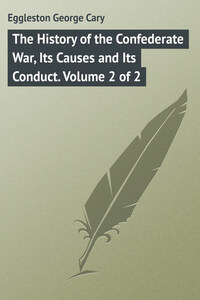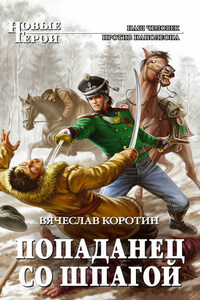A work of this kind necessarily makes no pretension to originality in its materials; but while all that is here related is to be found in books, there is no one book devoted exclusively to the history of the Creek war or to the life of William Weatherford, the Red Eagle. The materials here used have been gathered from many sources – some of them from books which only incidentally mention the matters here treated, touching them as a part of larger subjects, and many of them from books which have been long out of print, and are therefore inaccessible to readers generally.
The author has made frequent acknowledgments, in his text, of his obligations to the writers from whose works he has drawn information upon various subjects. By way of further acknowledgment, and for the information of readers who may be tempted to enlarge their reading in the interesting history of the South-west, he appends the following list of the principal books that have been consulted in the preparation of this volume:
Parton's "Life of Andrew Jackson."
Eaton's "Life of Andrew Jackson."
Pickett's "History of Alabama."
Drake's "Book of the Indians."
McAfee's "History of the Late War in the Western Country."
Claiborne's "Notes on the War in the South."
Meek's "Romantic Passages in South-western History."
"Indian Affairs, American State Papers."
Kendall's "Life of Jackson."
Waldo's "Life of Jackson."
Russell's "History of the Late War."
Brackenridge's "History of the Late War."
CHAPTER I.
SHOWING, BY WAY OF INTRODUCTION, HOW RED EAGLE HAPPENED TO BE A MAN OF CONSEQUENCE IN HISTORY
It is a long journey from the region round about the great lakes, where Tecumseh lived, to the shores of the Alabama and the Tombigbee rivers, even in these days of railroads and steamboats; and it was a much longer journey when Tecumseh was a terror to the border and an enemy whom the United States had good reason to fear. The distance between Tecumseh's home and that of Red Eagle is greater than that which separates Berlin from Paris or Vienna; and when Tecumseh lived there were no means of communication between the Indians of the North-west and those of the South, except by long, dangerous, and painful journeys on foot.
A man of smaller intellectual mould than Tecumseh would not have dreamed of the possibility of establishing relations with people so distant as the Creeks were from the tribes of the North-west. But Tecumseh had all the qualities of a man of genius, the chief of which are breadth and comprehensiveness of view and daring boldness of conception. The great northern chieftain did many deeds in his day by which he fairly won the reputation he had for the possession of genius, both as a soldier and as a statesman; but nothing in his history so certainly proves his title to rank among really great men as his boldness and brilliancy in planning the formation of a great confederacy of the tribes, which extended in a chain from the lakes on the north to the Gulf of Mexico on the south. He was wise enough to learn of his foes. He saw that their strength lay in their union; that it was by "joining all their camp-fires," as he phrased it, that they made themselves irresistible; and as he saw with consternation that the great tide of white men was steadily advancing westward, he understood, as few men of his race were capable of doing, that there was but one possible way for the red men to withstand the ever-encroaching stream. Separately the tribes were powerless, because separately they could be beaten one by one. Troops who were engaged in reducing an Illinois tribe during one month could be sent the next to oppose another tribe in Mississippi or Alabama. Thus the secret of the white men's success, Tecumseh saw, lay in two facts: first, that the whites were united, working together for a common purpose, and helping each other in turn; and, second, that the whites used the same troops over and over again to fight the separately acting tribes.
Seeing all this and understanding it, Tecumseh conceived his great plan – a plan equally great, whether we regard it as a stroke of statesmanship or a brilliant scheme of military combination. He determined, as he said, to build a dam against the stream. He undertook to form a confederacy of all the tribes from north to south, to teach them to act together, and to oppose the advance of the white men by uniting that power which they were wasting separately.
It was in execution of this plan that Tecumseh made that journey to the South in the year 1811 which, in combination with other causes to be mentioned in their place, induced the Creeks of Southern Alabama to abandon all that they had gained of civilization, and to plunge first into a war among themselves, and afterward into that struggle with the white men which destroyed their nation almost utterly.
In that war there was one man more conspicuous than any other – more relentless, more daring, more desperate in his refusal to give or to accept quarter, and at the same time more brilliant in attack and defence, abler in counsel, and having greater skill in the field than any of his fellow-chiefs – a man who fought Jackson, Claiborne, Flournoy, Floyd, and Coffee, whose troops, coming from different quarters of the country, surrounded him on every side and outnumbered him on every field; fighting them with credit to his own skill and daring, and with no little damage to these skilled enemies – a man of whom Jackson said, "He is fit to command armies."














